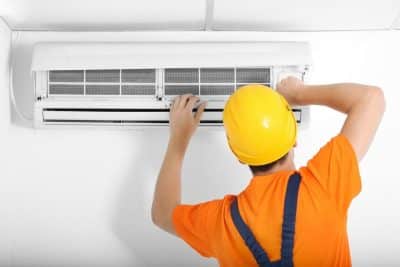
You’ve finally taken the plunge and purchased that perfect vacation home.
You’ve done some renovations, added furniture, and now you want to start renting it out.
You’ve heard about property management companies and are interested in hiring one for your investment property. But what does this entail?
Who needs a property manager?
There are a few different types of property managers, but they all perform similar duties.
Before deciding on a property manager, it’s important to consider who needs a manager and why they need one. The most common use for a property manager is when someone who owns the house has no time or desire to be involved with it themselves.
This person may have inherited the house from their parents and have no interest in managing it themselves because they don’t live there anymore; another example would be an investor who wants someone else to do all the work for them so that he can focus his efforts elsewhere.
Another group of people who might benefit from hiring a property manager are those who want to rent out their homes but lack experience in doing so. If you’re not sure how much should be charged per square foot or which areas should get painted first, hiring someone with experience will allow you more freedom while reducing stress levels (and costs).
Finally, homeowners may wish to hire managers, like Austin Property Management, if they own several properties at once because there might not be enough hours in the day for doing everything yourself!
You could also hire one if your main goal is simply having someone else take care of things while you pursue other ventures such as traveling abroad or starting your own business; this allows owners maximum flexibility without having any kind of negative impact on their lives–or finances!

7 Things to Know About Good Property Management
1. You will likely need a license
Property management is a regulated industry and some licenses must be obtained in order to legally manage properties.
The license needed depends on your location, but it can usually be achieved by completing an education program and passing an exam. Even better, look for a Certified Property Manager.
There are only 6 states that don’t require some kind of license to be a property manager and it’s best if you find a property manager that sought advanced training and extended education.
2. Good Service means success
Good service is the key to customer loyalty, and customer loyalty is what you need to build a successful business.
Look for a property manager that focuses on not just running your properties but working the market, the tenants, and your goals to the best functioning machine.
3. Constant Communication is best
One of the most important things you can do as a property manager is to communicate with your tenants and the property owners quickly and efficiently.
If your property manager drops unexpected expenses on you that could have been avoided with faster and more effective communication, it may be time to look for a new property manager.
4. It’s Their Job to Maximize Profitability
When choosing a property manager, you want to make sure they have a plan to make your investment property profitable. Their plan should address the following:
Expenses. Maintaining efficient expenses is the first step to profitability and this doesn’t only include the rent. Your property manager should maintain excellent records, use technology to help screen for good tenants and process payments, but not overdo it, and have a plan to minimize any waste.
Vacancies. This is a no-brainer. A vacant property costs you money. Your property manager should have a good record of not only tenant retention but also limited periods of vacancy between tenants.
Repairs. Maintaining good records, regular maintenance schedules, and limited time between tenants means less money out of your pocket on larger, more expensive repairs.
5. Keep up with the market
It’s no secret that the housing market is constantly changing.
Your property manager should be knowledgeable not only upfront when you start the property, but they should also regularly advise you on how the market is changing and how things like property value, rental rates, occupancy rates, and market changes are affecting your investment.
A good property manager will update you regularly on what changes you could make to the property to make it more desirable and more profitable in current markets.
6. Network, Network, Network
Property Managers should have an extensive network so that if any issue comes up with your property, they already have someone on speed dial to take care of it.
Whether it’s contractors that you can trust, professionals to repair a leaky faucet, attorneys to draft leasing agreements, or any other potential service providers, a property manager should already have people they work with regularly that they trust.
7. Good properties mean nice properties
The first thing you want to do is make sure that your properties are in tip-top shape.
The first thing a good Property Manager should establish for you is their plan for a consistent and regular maintenance schedule that will keep your investment in the best shape.
This plan should include:
- Inspections
- Interior upkeep
- Exterior upkeep
- Cleaning
- Repairs
- Onboarding instructions for tenants regarding their responsibilities i.e., filter changes, carpet cleaning, etc.
- Any extras like pool maintenance, pest prevention, lawn care, snow removal
Conclusion
As you can see, property management is a very important part of the real estate business.
It’s easy to get started, but it takes hard work and dedication to be successful. The good news is that there are plenty of resources out there to help you on your way to finding the best property manager in your area!
Hopefully, this article has given you some helpful information about how to get started with property management.
Ease your investment property woes and hire a property manager to take care of all the little things for you.









